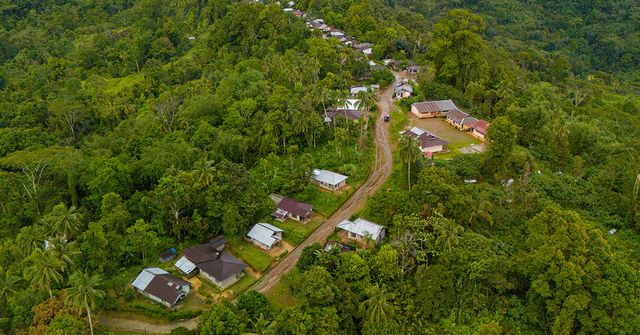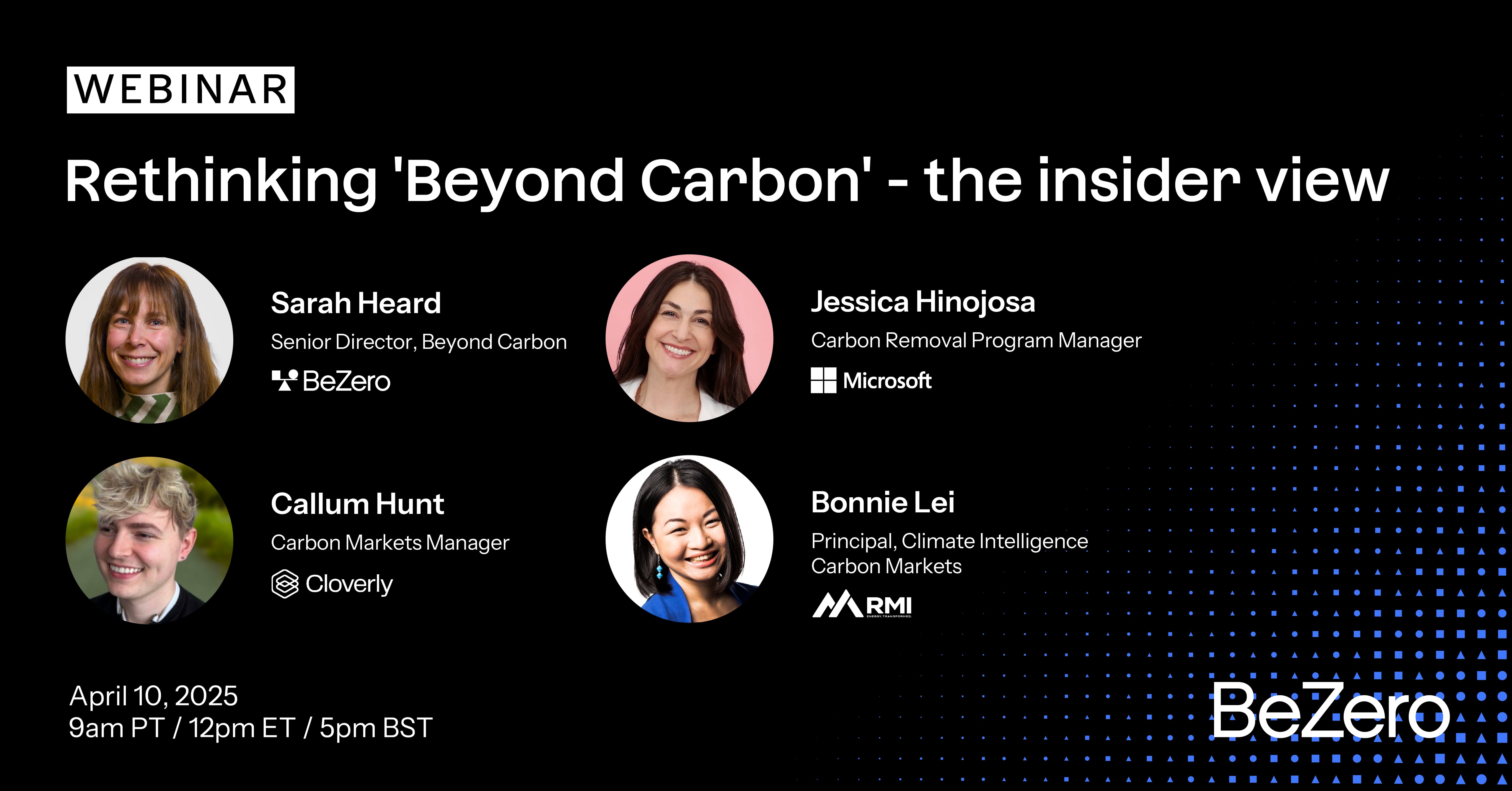
Webinar - Rethinking ‘Beyond Carbon’: the insider view
- Beyond Carbon
Climate projects don’t operate in a vacuum. While assessing carbon efficacy is hard enough, understanding the risks and benefits beyond carbon comes with a distinct set of challenges.
On Thursday 10th April , we hosted a webinar that explored what the market really thinks about beyond carbon risk, and how project safeguards, SDG claims and co-benefits fit together in a holistic way.
Sarah Heard, Beyond Carbon Director at BeZero was joined by Jess Hinojosa, Carbon Removal Program Manager at Microsoft, Bonnie Lei, Principal, Climate Intelligence at RMI and Callum Hunt, Carbon Markets Manager at Cloverly to discuss disclosure and transparency within the market, and the tools available to help market actors better understand the non-carbon impact of their projects.
Sarah from BeZero described “beyond carbon” as all the social and environmental impacts that carbon projects generate aside from reducing greenhouse gases. While biodiversity and water markets are still emerging and lack the maturity of carbon markets, Sarah emphasised the importance of embedding these benefits into existing carbon frameworks. Rather than waiting for separate markets to develop, she argued that the most immediate impact can come from incorporating these factors directly into carbon credits.
Callum from Cloverly urged the sector to rethink its language. Instead of referring to “co-benefits,” he suggested the term “core benefits,” reflecting the idea that environmental and social impacts are not optional extras, but central to a project's success. He cautioned that a carbon-only perspective can limit project effectiveness and even introduce long-term risks. Callum also stressed the value of indigenous knowledge systems and learning from local communities as part of developing truly resilient and responsible climate solutions.
Jessica from Microsoft built on this view, explaining that Microsoft takes a holistic approach to project evaluation. If a project does not deliver broad environmental or community impact, it may not meet the company’s quality standards. Microsoft conducts thorough due diligence, often taking more than a year, and includes site visits to engage directly with local stakeholders. Jessica explained that every project is assessed against a set of quality criteria that go beyond just carbon metrics, ensuring a well-rounded and equitable assessment.
Bonnie from RMI echoed the call to treat beyond carbon benefits as essential components. She highlighted the need for quantification and data transparency to ensure these benefits are properly valued. Bonnie explained that RMI focuses on providing the tools and educational resources needed to guide the market towards more rigorous and transparent standards.
Throughout the session, the idea of achieving a “holistic balance” was a recurring theme. Each speaker expressed a shared commitment to evolving the carbon market in a way that respects and rewards biodiversity, social equity, and broader ecological outcomes. While standalone markets for biodiversity and water remain nascent, the panel agreed that the most pragmatic and impactful path forward is to integrate these benefits into carbon market mechanisms now.
